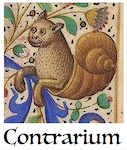War and Peace
Notes on “Taras Bulba” and the current Ukrainian war
The European Union has banned RT and other Russian media, accusing them of “misinformation”. Since “Covid”, we are supposed to trust only the official Western big media and governments; any other source of information is dismissed as “misinformation” and directly censored. I don’t remember having seen anything like this before, but it seems that we are no longer allowed to have our own opinion about anything.
Another worrying development is European countries sending weapons to the Ukraine, at the same time that they say they are for “peace”. If they are for peace, why are they sending weapons to a country in war? Is that not helping to prolong the conflict? Not to mention, risking being involved in the war, as sending weapons and soldiers can be described as a casus belli (Even Switzerland and Sweden ended their usually neutral status).
Is this war bad or good? I suppose it depends on how it ends.
Nowadays, in particular since the last two World Wars, but also the Vietnam war and other more recent battles in the Middle East, wars are seen mostly as a catalogue of horrors with no redeeming value. Everybody is “anti-war”. But it was not always so; and for centuries war was seen as an occasion for heroism and as a fine occupation for young men. Warriors were celebrated by poets and singers from the beginning of recorded history. Many classics of literature, starting with the Iliad, are about war.
I have just read Nikolai’s Gogol “Taras Bulba“, which is an interesting short novel to read these days. The story takes place in the Ukraine, which was at the time was partly controlled by Poland, and talks about Cossacks making war on Poles (and Jews) — and, occasionally, Muslim Tatars too. It is mostly based on a real Cossack-Polish War that took place during 1648-1657. The Cossacks revolted against the Polish nobility that controlled the eastern part of Ukraine, giving advantages to the Catholics over the Russian Orthodox, and also using the Jews as “tax-farmers”, collecting revenue for profit and making many farmers poor.
While the novel is of course a romantic portrayal of the Cossacks (Gogol had Cossack ancestors), the author does not shy away of showing their extreme violence, not sparing even women nor children, flaying people and burning them alive. And yet the Cossacks are shown as a noble, courageous people, that love war and don’t know what to do when there is none. Other peoples, such as the Jews, are shown as cowardly and only interested in commerce (although it is more a comical portrayal, and not totally negative, as a Jew ends up helping the protagonist). Turks and Tatars are shown as cruel infidels constantly raiding the Cossack lands. The Poles are shown in a negative light because of their control over the Cossacks, and yet one of the Cossack characters, Tara’s own son, falls in love with a beautiful Polish noble lady, and switches sides.
In the novel, Taras Bulba dreams of a new tsar that will come to unify the lands. And in fact, after the Cossack revolt, the Cossacks obtained a territory independent from Poland, and swore loyalty to the Russian Tsar. Eventually, most of Ukraine became part of the Russian Empire.
Is Putin dreaming of creating a new Russian Empire, as some critics say? Or does he have fair security concerns, reacting to NATO encroaching Russia and trying to put American missile bases not just in Poland but in the Ukraine? And what do Ukrainians think?
The Western media oversimplifies the issue, but the situation is not that easy to understand. The Ukraine itself is roughly divided in half, with a more pro-Russian and Russian-speaking Eastern part, and an Ukrainian-speaking more nationalist Western part. The Ukrainian government, since 2014, has been in one way or another controlled by the West/Americans, favouring more the nationalist Eastern side at the expense of the more pro-Russian parts. Will the country eventually be divided along those lines? I suppose it’s too early to tell.
They say that “the first casualty of war is truth”, and in fact it is difficult to find many truthful or verifiable sources of information. Everyone has an agenda.
The war goes on, but hopefully it will remain limited and not turn into WWIII.



